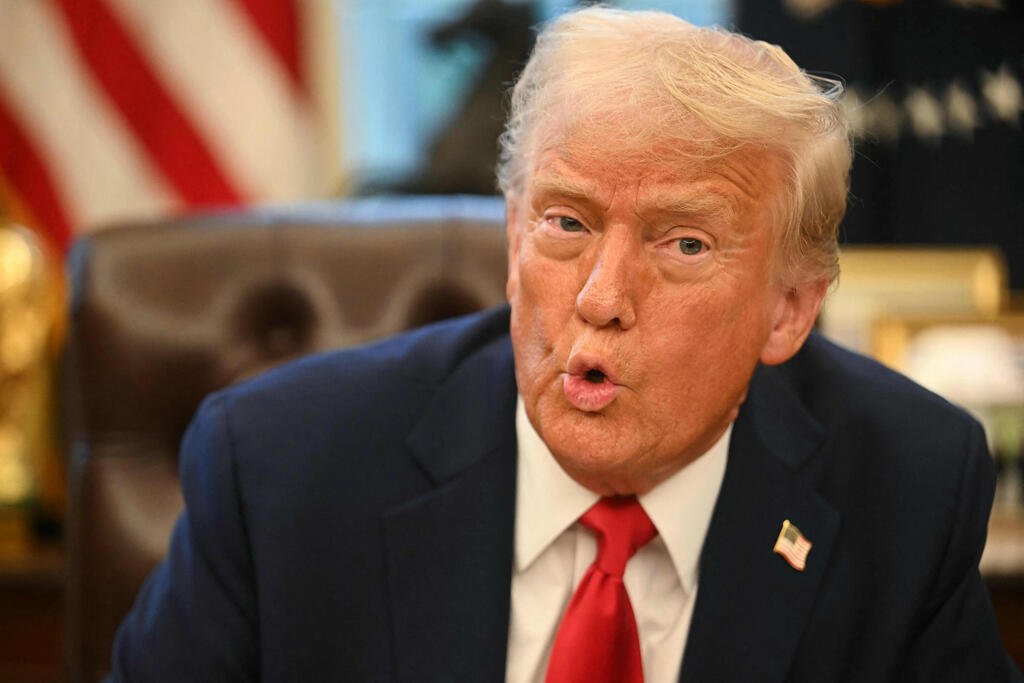These sanctions are not new. They were first instituted under a special law passed by the U.S. Congress in the summer of 2010 during the Obama administration and were further intensified in 2012. These were not solely American sanctions—any entity that violated them faced severe repercussions from the United States. For example, in 2014, the French BNP bank was forced to pay a massive fine of $8.9 billion for breaching these sanctions.
The primary burden, however, fell on Iran itself. The country’s national GDP dropped by nearly 20%. After a long and arduous negotiation, the nuclear agreement with Iran (JCPA) was signed in July 2015, leading to the removal of most sanctions. Iran’s economy began to recover, but the agreement failed to address Iran’s sponsorship of terrorism, which only increased. Funds flowed freely to its proxies, including Hezbollah, the Houthis, Shiite militias in Iraq, Islamic Jihad, and Hamas.
However, the visible outcomes were clear: Iran’s economy suffered another major blow. By the end of 2019, then-Iranian President Hassan Rouhani admitted that the renewed sanctions had caused economic damage totaling $200 billion. By the end of 2020, Iranian Foreign Minister Javad Zarif revealed the damage had reached $250 billion. The impact on Iran’s defense budget was swift, with a 28% decline in defense expenditures.
When Joe Biden entered the White House, a new narrative began. Just one month into his presidency, Biden lifted the sanctions, clearly driven by good intentions and a desire for reconciliation. However, appeasement does not work with the mullah regime. Biden also reinstated Rob Malley as the head of the U.S. negotiation team with Iran. Malley, known as a staunch advocate of appeasement, often left many questioning whom he was truly representing—Iran to the U.S. or the U.S. to Iran.
Two members of his team, Deputy Richard Nephew and Ariane Tabatabai, who is of Iranian origin, resigned in protest over Malley’s excessive and dangerous concessions. The appeasement strategy ultimately failed. Malley was unable to secure an agreement and was later removed from his position under unclear circumstances, with allegations of security violations looming over him. On Tuesday, Nephew and Tabatabai published an article stating, “Trump was likely the last president with a real chance to stop Iran from building a nuclear arsenal.”
Iran now finds itself at an unprecedented point of strategic vulnerability due to blows inflicted by Israel on both the regime and its proxies. Yet, it is simultaneously closer than ever to achieving a nuclear weapons breakthrough and reaching a “weaponization group,” which would allow it to translate its nuclear progress into military capability.
The Biden administration has primarily offered incentives rather than deterrents. While there have been occasional declarations like, “We will not allow Iran to obtain nuclear weapons,” in practice, Iran has both advanced its nuclear program and continued its regional subversion, culminating in the October 7 attack and the ongoing war with its proxies.
Western leaders struggle to comprehend that Iran is governed by a messianic regime. Yes, it has interests. Yes, it is highly skilled in negotiations and has successfully manipulated Western nations. Yet, this is a regime willing to make enormous sacrifices, including severe economic harm to its own citizens, to achieve its goal of regional dominance. Its declarations about the destruction of Israel are not mere empty rhetoric—they reflect the genuine intent of a fanatical regime.
The sanctions Trump signed are a step in the right direction. They are an important measure that will further limit Iran’s ability to invest in its regional proxies. But sanctions alone cannot stop Iran’s nuclear ambitions. Sanctions cannot halt the messianic and destructive ideology driving the regime. The objective remains unchanged. While it is still possible to confront the current Iran, dealing with a nuclear-armed Iran would be far more challenging—if not impossible.
Eliminating the nuclear threat is achievable through cooperation with the United States. If the price Israel must pay is concessions on the Palestinian front—such as issuing a declaration of political intent for the Palestinians or, for now, refraining from fully dismantling what remains of Hamas—then that price must be paid. Iran is the head of the snake. Hamas can wait. Israel will still be able to deal with Hamas remnants a year or two from now. But Iran will not wait. In a year, it may already be too late—perhaps even just a few months from now.
